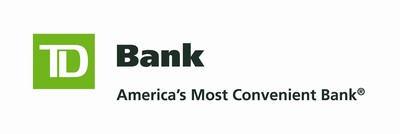Medical practitioners are optimistic about their practices’ finances but remain concerned about the impact of politics on the American healthcare industry, finds a survey released today by TD Bank, America’s Most Convenient Bank®.
|
CHERRY HILL, N.J., /PRNewswire/ -- Medical practitioners are optimistic about their practices' finances but remain concerned about the impact of politics on the American healthcare industry, finds a survey released today by TD Bank, America’s Most Convenient Bank®.
According to TD Bank's Healthcare Survey of U.S. doctors in the medical, dentistry, veterinarian and ophthalmology fields, most independent medical offices remain small businesses, with 46 percent being solo practices and 78 percent of all practices (solo and those with partners) operating in just one office location. Investing in Growth Higher revenues will not come without investments that create efficiencies and expand patient bases. Independent practitioners' largest anticipated financial expenditure in the next five years is equipment financing (45 percent), with physical expansion, relocation or renovation (19 percent) a distant second. The most popular anticipated method for funding these needs is cash (45 percent), followed by a line of credit (34 percent) and credit cards (27 percent). There are obstacles to expansion, however. Medical practitioners named cost (41 percent) as the leading barrier to growing and expanding their practice, followed closely by patient demand and reimbursement levels (both 40 percent). Future Financial Strategies Independent medical practitioners also are developing long-term plans, especially for succession and retirement:
Respondents also expressed confidence in their financial preparedness for retirement. Eighty-six percent of doctors believe they are financially ready, and nearly all (89 percent) said they expect sale of their practice to provide at least a portion of their retirement fund. "Valuations of practices can vary from year-to-year due to ever-changing factors such as the economic environment, area demographics, number of active patient records, and practice production and profitability," said Dan Croft, Head of Healthcare Practice Solutions at TD Bank. "Although it is nice to think about tapering off work before retirement, that may lower a practice's sales price, as valuations are typically focused on the last 12 months of production and net income." Political Landscape Brings Challenges The majority (70 percent) also are concerned that the new Congress will make changes to the healthcare system. This is a significant jump from the 52 percent of doctors who had such concerns before the 2016 election. When asked which specific issues lawmakers should address, respondents named:
"Given the uncertainty within the broader U.S. political climate and continued scrutiny around healthcare policy, it is not surprising that practitioners have heightened concerns about healthcare legislation and insurance reimbursement," Croft said. "Potential changes to both Medicaid eligibility and benefits mean doctors need to develop a broader base of collection sources, including fees for service, membership plans and private/commercial insurance payors, in order to avoid a heavy concentration in public reimbursement sources." Survey Methodology About ENGINE About TD Bank, America's Most Convenient Bank® TD Bank, America's Most Convenient Bank, is a member of TD Bank Group and a subsidiary of The Toronto-Dominion Bank of Toronto, Canada, a top 10 financial services company in North America. The Toronto-Dominion Bank trades on the New York and Toronto stock exchanges under the ticker symbol "TD". To learn more, visit www.td.com.
SOURCE TD Bank |
||
Company Codes: NYSE:TD, Toronto:TD |





